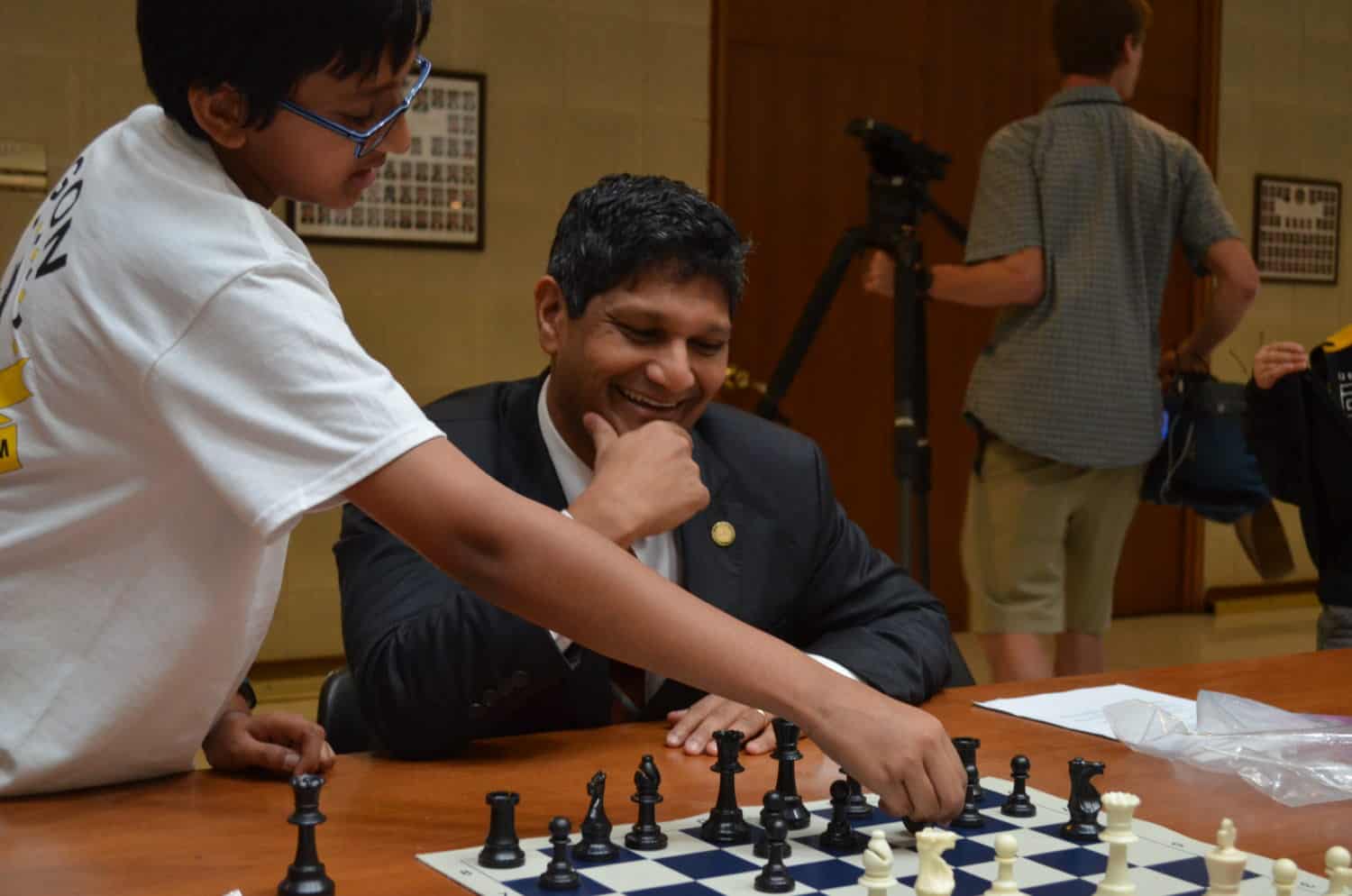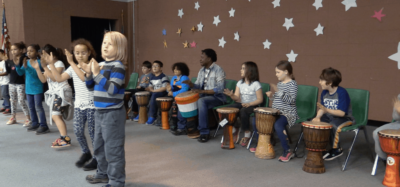When Sen. Jay Chaudhuri, D-Wake, took a chess lesson at the General Assembly on Wednesday, his teacher was not a seasoned chess professional. It was an elementary school student.
Chaudhuri sat at a table locked in a game of wits with one young man while another student gave him tips on the best moves to make.
The children, many of them competitors in the upcoming NC Scholastic Chess Championships, descended on the legislature to show lawmakers their skills, tell them what chess means, and try to garner support for youth chess clubs in districts around the state.
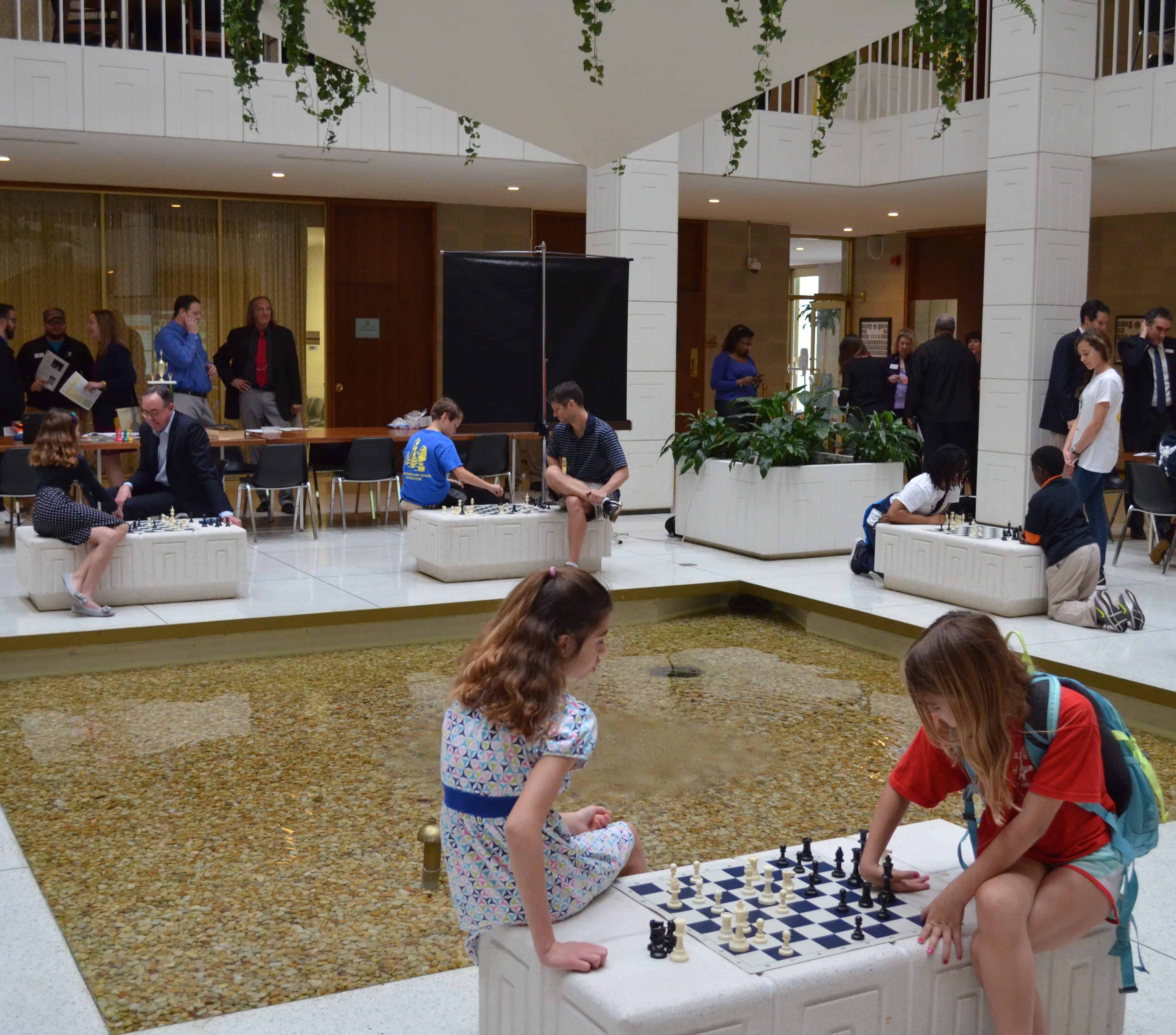

Chaudhuri said he never really looked at chess from an educational point of view before Wednesday’s event.
“In a lot of ways it’s kind of eye opening,” he said. “I’ve just started playing chess a little bit with my own kids, but I haven’t thought about it from this perspective.”
Michael Thomas, a SAS senior systems architect, leads the SAS support of North Carolina Chess. Since 2014, SAS has sponsored the Scholastic Chess Championships.
Last week, Thomas and his son went to the office of every legislator in the General Assembly to personally invite them to the event. He said the response was positive.
“Everybody was kind of liking the concept of ‘Oh, there’s chess. I like chess,'” he said. “Most people seemed aware of the studied benefits of chess.”
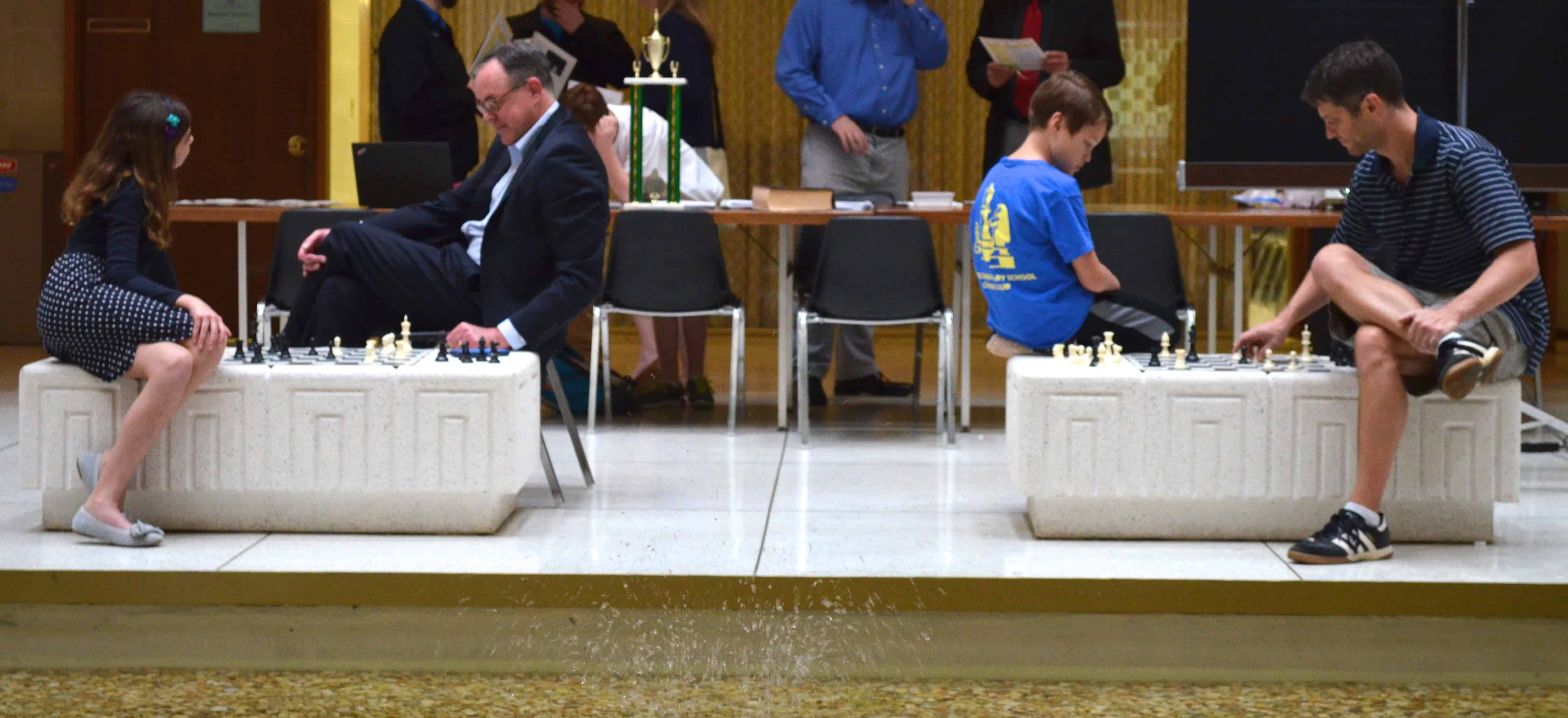

Thomas described the two ways chess clubs are created in schools. One way is when a chess enthusiast, likely a parent, decides to start a club and brings it to the school. But starting a program that way requires having someone interested in chess and willing to take the time necessary to make a club happen.
“Obviously, that’s not something I would label a real growth model,” he said.
The other way is when a group of parents or the school hires a chess professional.
“This is a model where you have to have money,” Thomas said. “You have to pay these people to come in and make it happen.”
Neither model is perfect. Thomas said people around the country are working on other models, but at the moment, some districts just get left out.
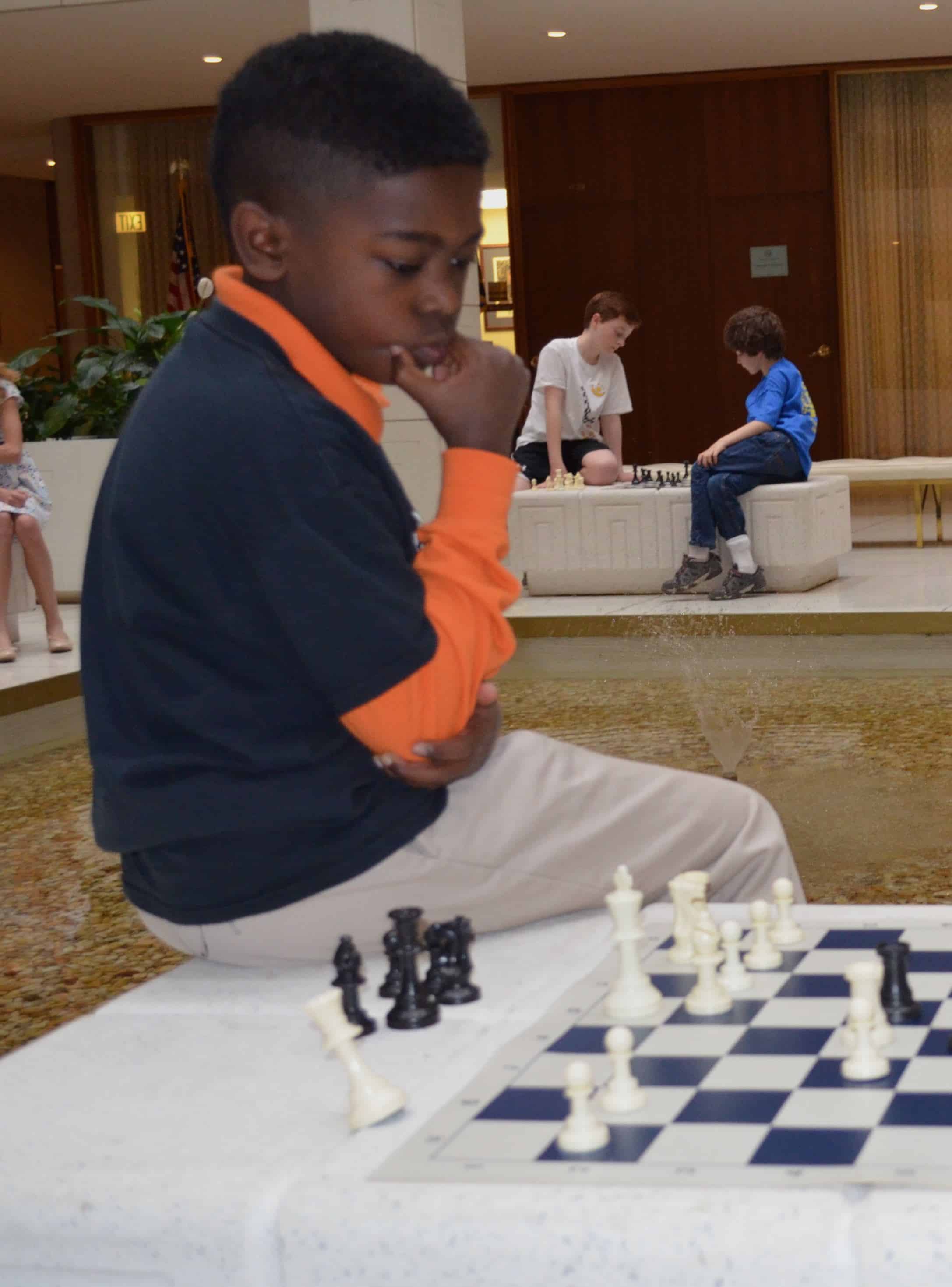

Most of the children at the legislature Wednesday are in clubs in Wake County, and it was obvious to parents, students, and other participants why chess is valuable.
I sat down to play a game with 10-year-old Zachary Davis who hails from Durham. He said he likes the strategy of chess and described it as “an entire world in itself.” He was quick to answer about the educational benefits of chess.
“I think it’s about learning what to do in tough situations and how to come out with a checkmate or come out in a way that’s good,” he said.
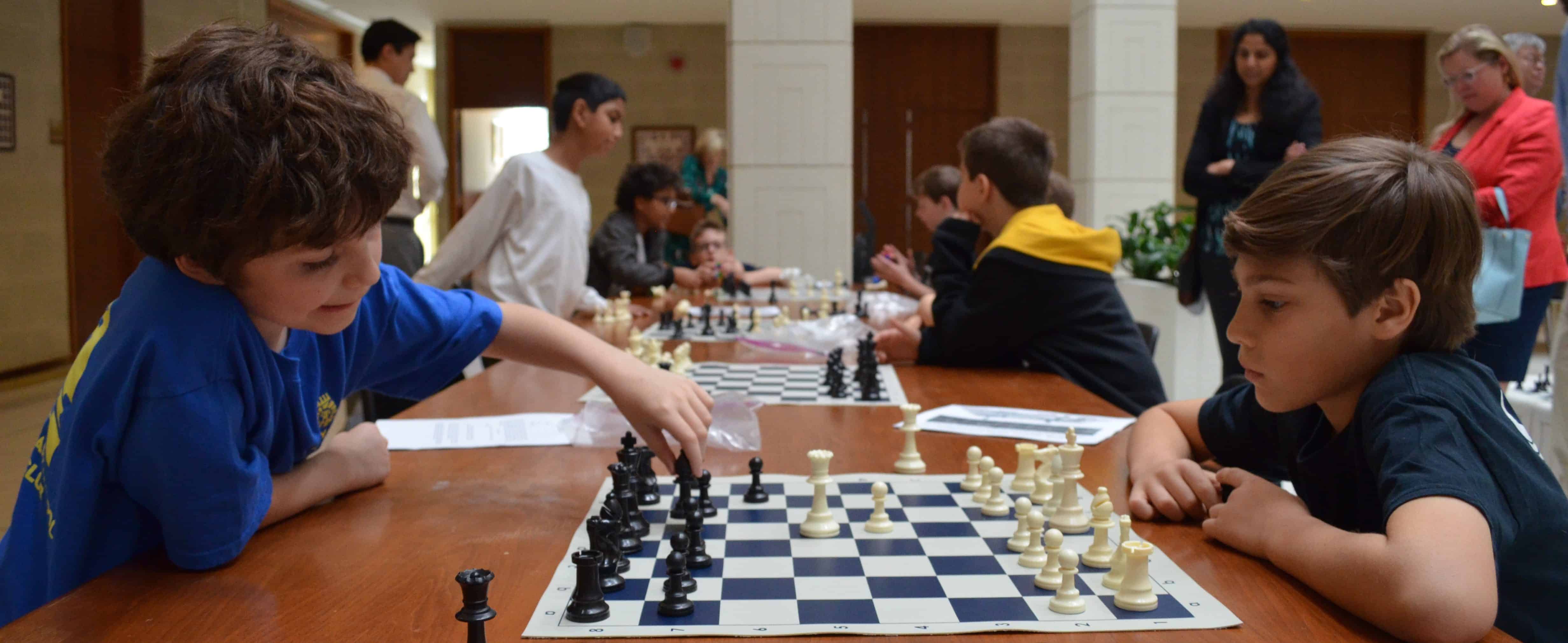

Lacy Elementary student Lauren Lloyd showed up Wednesday with her twin sister Morgan. The two play in tournaments and together at home. They debated who has the winning record in their history.
See what they said about that below. Lauren is on the left, Morgan in the middle, and their friend Darian is on the right.
Lauren described the complexity of chess when asked about the educational importance of the game.
“You have to think about what you’re going to move, and if you move that piece, how it will affect the rest of the game,” she said.
Watch the full conversation:
Jeffrey Jones, vice president of the North Carolina Chess Association, said there are more than 1,000 children in the Triangle involved in the Association. He anticipates more than 700 children from around the state will compete in the upcoming tournament on March 11th and 12th in downtown Raleigh. He said chess gives children something they do not necessarily get in traditional classroom settings.
“It builds a lot of critical thinking skills that students don’t often get in their schooling,” Jones said. “Students learn to adapt in an environment that is sometimes beyond their control.”
Watch Jones’ remarks:
Parent Mark Indermaur came to the legislature on Wednesday with his son, a student at Hunter Elementary. Indermaur said his son initially learned chess in Cub Scouts and later joined a chess club when it was formed at Hunter.
Indermaur also learned chess as a kid but largely left it behind until his son picked it up. Then he began getting involved in the chess club which he now leads.
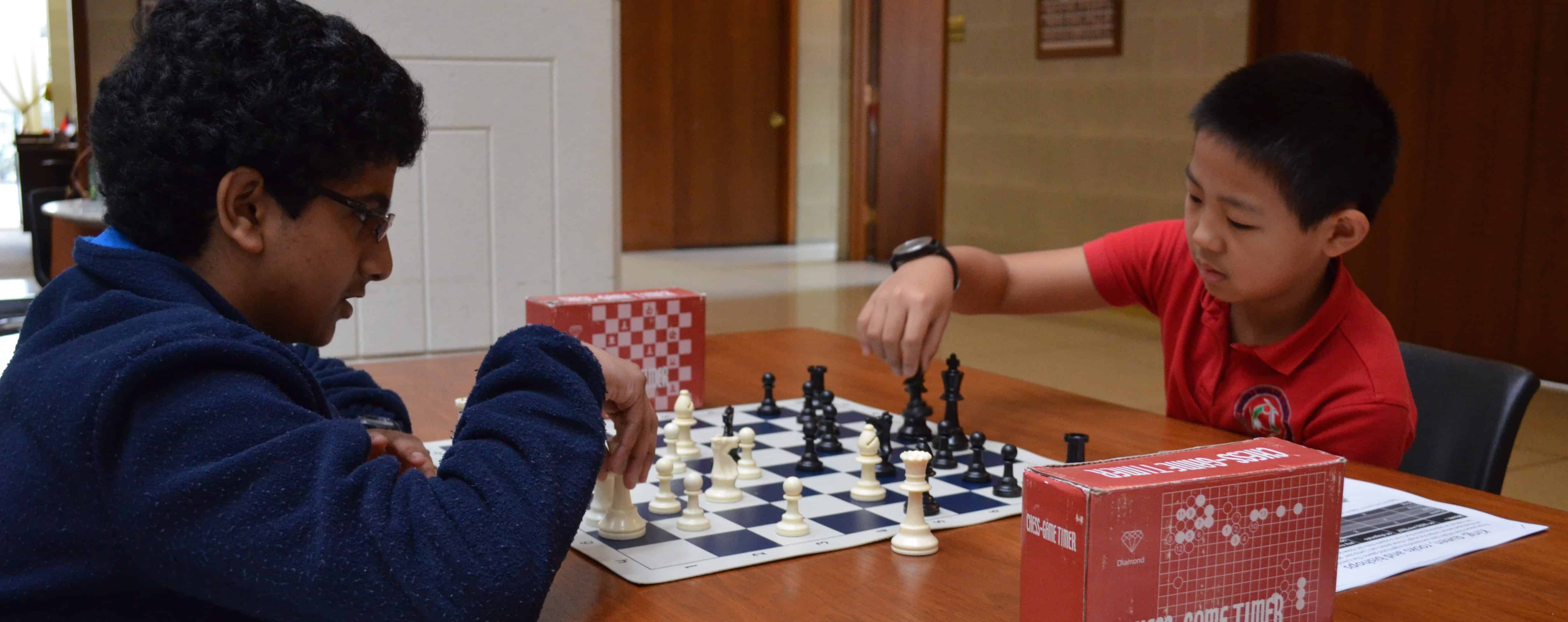

He said that chess is easy to learn, initially, but has an “almost infinite amount” that can be learned about it. And it teaches kids a lot, he said.
“You can’t have an unlucky hand or a bad role of the dice,” he said. “You’re responsible for the results.”
Watch Mark Indermaur’s full remarks:
Michael Thomas said parents do not really have to talk children into joining chess clubs. “There is no need to convince the kids,” he said.
For North Carolina students, chess clubs may be a “Field of Dreams.” If you build it, they will come.
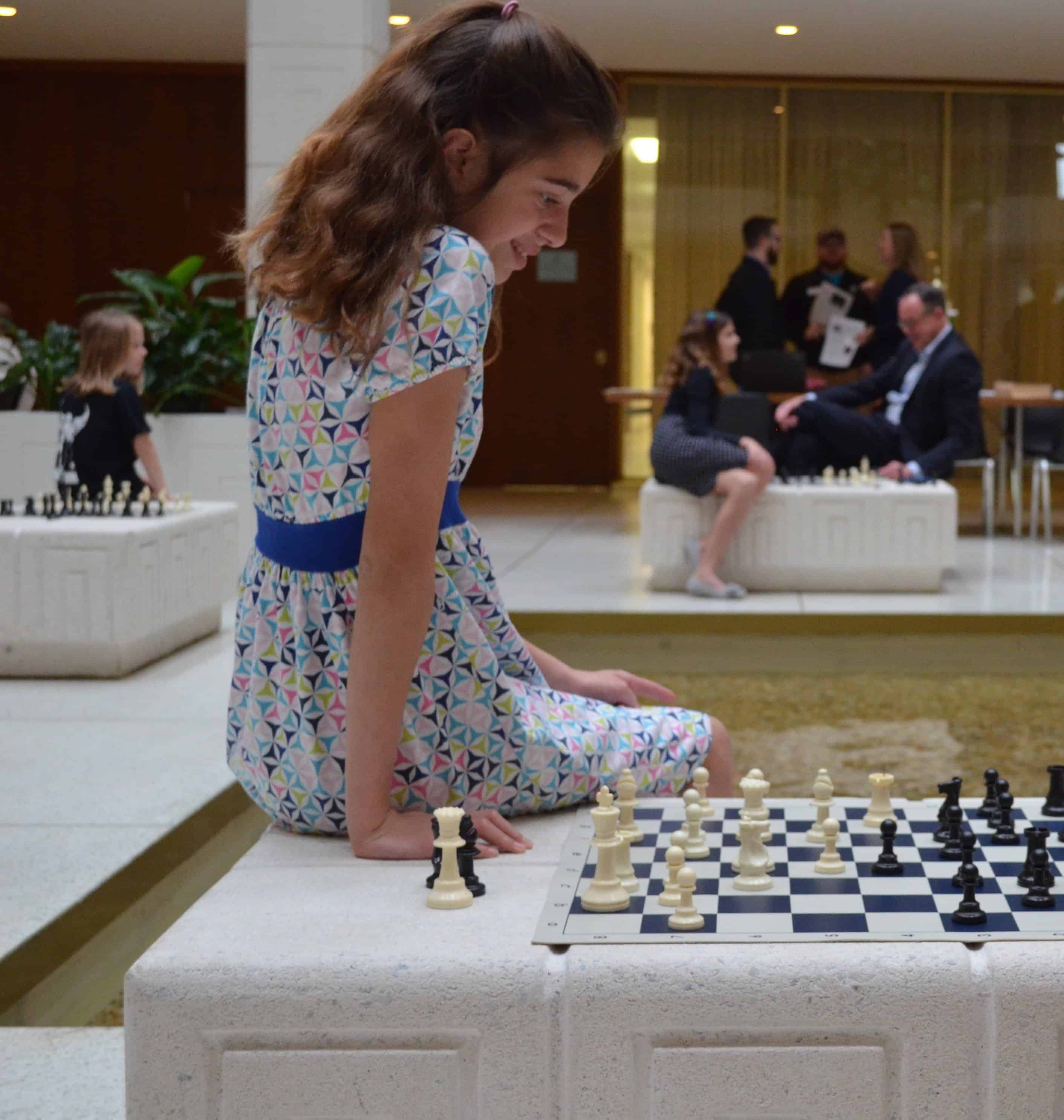

Editor’s Note: SAS is a supporter of EdNC.
